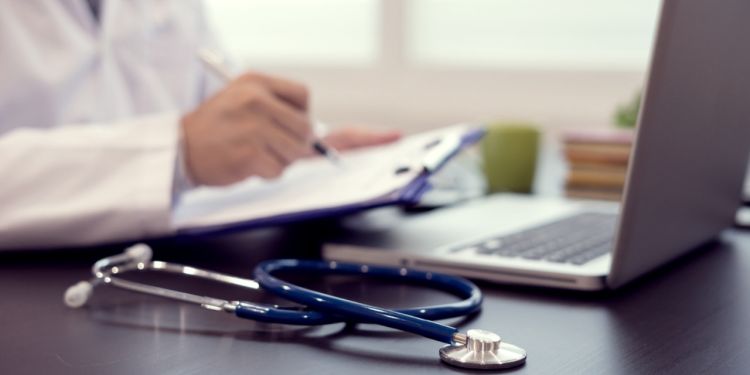Healthcare in Saudi Arabia

If you are planning to live and work in Saudi Arabia, healthcare is definitely something to look into. Here is an overview of the Saudi healthcare system.
Saudi Arabia has developed drastically in the healthcare field while continuing to expand in the years to come. With a booming population, Saudi Arabia has been able to cope with providing an adequate amount of healthcare facilities to serve both the national and foreign population. With over 400 public hospitals and 200 private hospitals, it is easy to feel comfortable with the available care.
According to the World Health Organization (WHO), the national health program of Saudi Arabia is a model for developing countries. State of the art clinics and high-quality services are available and are attracting specialists from all over the world. Meanwhile, public hospitals are providing free of charge services for Saudis.
The Saudi healthcare system
There are two branches of healthcare in Saudi Arabia: the government-state funded and operated Division and the Private Pay-Per-Use Division. The Ministry of Health is the government body, providing preventive, curative and rehabilitative health care through facilities like medical cities, specialised hospitals, university and military hospitals and primary health centres and many online services.
The government-funded branch of healthcare is only open to Saudi nationals; it does not serve foreign individuals in the country. The government provides its citizens with a comprehensive healthcare sector that includes clinics, hospitals, outpatient programs, rehabilitation centres, dentistry and pharmacies. The services to Saudi citizens are completely free, and prescribed medication is provided without charge.
Private healthcare in Saudi Arabia
For foreigners, the private healthcare division offers a wide range of facilities and services for all your healthcare needs. These include international hospitals, specialised clinics, dentistry, rehabilitation and therapy centres and much more. To use these services, you must submit payment upon receiving care. That presupposes that you are insured and your coverage includes the full or a percentage of the fees. You also have the option to pay out-of-pocket.
There is no standardized procedure for registering for healthcare as an expat. However, most employment contracts do come with healthcare insurance. Once you've been registered for private healthcare insurance, you'll receive a health insurance card and will be able to use it in healthcare facilities covered by your insurance provider.
To register for private healthcare, you will typically need to provide the following documents:
- Passport
- Residence permit (Iqama)
- And proof of address.
Private healthcare, though more expensive, comes with a number of notable benefits. This includes both shorter waiting times and access to a wider range of treatments. Private hospitals also tend to have more English-speaking staff and employ more expat doctors.
Medical insurance in Saudi Arabia
Medical insurance is mandatory for all expats in Saudi Arabia. In fact, to renew your residency permit (Iqama), you must first show proof of insurance coverage for the year.
There are many insurance companies to choose from, according to your needs and budget. Some of the leading health insurance providers are:
Consider having a look at their offers according to your needs and get a free quote.
As we've mentioned earlier, for many expats, medical insurance is covered in their compensation package upon employment. It is wise to fully understand the type of coverage being offered and if that same coverage would be given to your dependents.
Medical insurance policies range from very cheap and affordable to rather expensive. Each policy depends on the insurance company. You will find that the cheaper insurance policies are not accepted in many of the bigger, well-known healthcare facilities in the region, but rather a very short list of smaller-scale cheaper alternative options will accept it. Also, they tend to discount the services rather than cover, leaving you to co-payment for services.
Alternatively, the more expensive medical insurance policies are widely accepted across the region. They tend to offer exclusive fee coverage, as well as perks, including private hospital rooms, annual prescription lenses, specialized treatments including alternative procedures like chiropractic rehabilitation and acupuncture, to list a few.
Healthcare for women in Saudi Arabia
Expat women in Saudi Arabia may find it difficult to navigate their healthcare options at first. However, with a bit of research and equipped with the right knowledge, you will easily find your way around the system.
You can legally purchase birth control in Saudi Arabia — however, there are some restrictions. You should be able to purchase most forms of contraception — however, in some pharmacies, you may be asked to present a marriage certificate as sex outside of marriage is still illegal in the Kingdom. You are much less likely to need it in big cities like Riyadh and Jeddah.
Emergency contraception (like the morning after pill) is also available with a prescription. However, only some doctors will prescribe it. Abortion, on the other hand, is a very rare medical procedure that is only allowed in extreme cases.
Pregnancy, delivery and childcare in Saudi Arabia are generally of a very high standard, and you should be able to access all the same services you would in your home country.
The services included in your maternity plan in Saudi Arabia depend on the type of insurance you have. More expensive insurance plans may even cover prenatal and postnatal classes. If you plan on starting a family during your stay in Saudi Arabia, make sure to carefully check your health insurance plan so that it includes the services you will need throughout your pregnancy.
Important:
One very important thing to keep in mind is that to gain access to any maternity services in Saudi Arabia, you need to be legally married. This means that even if you want to confirm a pregnancy and are not legally married, it's best to do that via a home test. If you are single and pregnant, the best way to handle the situation would be to leave Saudi Arabia and have your baby abroad.
Child healthcare in Saudi Arabia
Healthcare for children is widely available across the country in both public and private hospitals. Note that babies in Saudi Arabia are vaccinated right after birth against tuberculosis and Hepatitis B. Plus, there is a national vaccination program that includes shots against:
- polio
- mumps
- measles
- whooping cough
- rubella
- and chickenpox
Vaccination for adults in Saudi Arabia
Before traveling to Saudi Arabia, it is recommended to be vaccinated against diseases such as tuberculosis, polio, hepatitis, tetanus and typhoid, especially if you are going to perform a religious pilgrimage.
Universal Immunization Vaccines for newborn/infants are available free of charge in Saudi Arabia. Contact your local neighborhood clinic for immunization distribution.
Medicine and pharmacies in Saudi Arabia
Most medicines in Saudi Arabia are sold without a prescription, with very few medicines requiring actual prescriptions. Medication in Saudi Arabia is not commonly dispensed, which means that you always buy much more than you need. You are often given the entire pack/bottle, so being cautious about dosage amounts is very important.
Medications in Saudi Arabia are heavily subsidised by the government, which applies to both nationals and expats, making them very affordable. You're likely to find that medications cost much less than they do in other countries. Keep in mind that you may not find specific medications; however, generics of almost all medicines are available in Saudi Arabia.
Pharmacies are available nationwide and are easily accessible. Most hospitals/clinics will have a corresponding pharmacy onsite. Commercial pharmacies are vast and easily found in the city, most of them providing 24hr/7 days week service. Most pharmacies, however, are open from 9 am till 1 pm with a midday break and then again from 4.30 pm till 10 pm.
Important:
Medication brought from your home country will require the original prescription attached to it. Depending on the medication, it may be banned in Saudi Arabia and confiscated upon inspection. Make sure to check the medication allowances before packing.
Finding healthcare in Saudi Arabia
Your medical insurance provider will provide you with a list of health institutions where your insurance is accepted. There are hundreds of clinics in the city; a good way to navigate the possibilities is by asking around. A recommendation from co-workers, seasoned expats, and neighbours is a good way to find the closest health facility nearby.
Nore that most insurance policies don't include dentistry. However, there are lots of facilities in the country offering dental services and finding a dentist shouldn't be a problem. Plus, over half of the dentists practicing in the country are expats, which means that you may easily find an English-speaking dentist if you need to. Most expats choose to turn to private dental clinics as these offer shorter waiting times and a more comfortable environment.
Mental healthcare facilities are also widely available, and the Mental Health Policy has been in place in the country since 2006. Those suffering from mental health problems may first go through primary care available at various health centres and may later be referred to specialized facilities like psychiatric hospitals, residential facilities or outpatient treatment. While there is a general improvement in the availability of mental care facilities, there is still some stigma present associated with mental disorders. Depression and anxiety are the most widespread mental health issues reported in the country.
In addition to standard medicine, you will also have access to alternative or traditional medical services, including acupuncture, naturopathy, osteopathy and more. Alternative medicine, also known as Islamic medicine, is quite popular across Saudi Arabia, and you should have no problem finding relevant facilities in most cities.
Medical emergencies in Saudi Arabia
The two main emergency numbers in Saudi Arabia are 999 and 991. However, as ambulance response times can be slow, it's sometimes better to drive to the hospital directly if there is one in your vicinity.
However, to call for an ambulance directly, you need to call 997. Ambulance response times can vary, and therefore, if possible, it is advisable to drive directly to the nearest hospital.
Other numbers to keep handy include:
- Fire: 998
- Traffic accidents: 993
- Public ambulance services: 997
- Natural disasters: 966
- Coast guard: 994
When calling an emergency number in Saudi Arabia, your call will first be answered in Arabic. You can then ask to be transferred to an English-speaking operator. However, if an English-speaking operator is unavailable, it's best to either have some basic knowledge of Arabic or have someone who can speak Arabic by your side to explain the situation for you.
Useful links:
Useful numbers:
Emergency: 999/ 911
Fire: 998
Traffic accidents: 993
Public ambulance services: 997
Natural disasters: 966
Coast guard: 994








